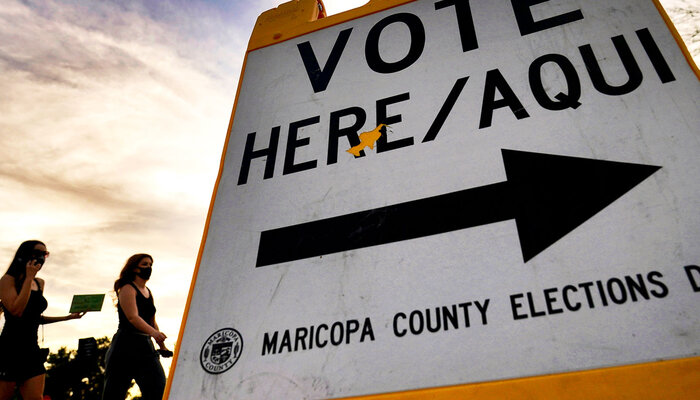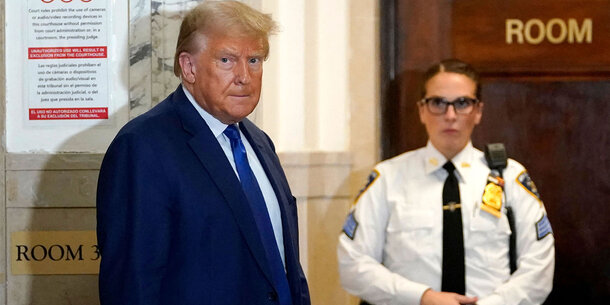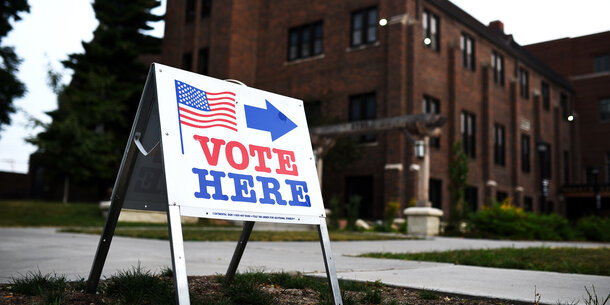In a brazen repudiation of federal law and recent Supreme Court precedent, Arizona recently enacted a law requiring documentary proof of citizenship to vote by mail or in presidential elections. In 2021, Arizona was one of the 17 states nationwide to enact new restrictive voting laws. Now it’s trying to break away from the rest of the voter suppression pack.
After a year and a half of conspiracy theories, a partisan postelection “audit,” antidemocratic legislation, election sabotage rhetoric from political candidates, and a Supreme Court ruling further weakening the Voting Rights Act, Arizona has become a key battleground in the fight for voting rights.
Arizona’s story is not all bad news, however. This fall, Arizona voters will likely have a chance to approve a ballot initiative to expand voting access and protect against election sabotage.
In 2020, Arizona saw an increasingly diverse electorate turn out to vote at historic rates. As soon as returns starting coming in on election night, anti-voter activists began spreading false claims about rampant voter fraud. Crowds began to form outside of election offices in Maricopa County, making bizarre allegations about Sharpie pens being used to mark ballots, noncitizens voting, and votes for President Trump being discarded.
These false claims proved durable in Arizona, among other places. In early 2021, State Senate President Karen Fann (R) ordered an audit of the 2020 presidential results in Maricopa County, initiating a review process that — despite being deeply flawed and partisan from the beginning — ultimately found no evidence of fraud. Nevertheless, Arizona lawmakers have continued to use the unreliable review as evidence of the need for new restrictive voting policies.
In April 2022, Attorney General Mark Brnovich (R) announced that the so-called audit had identified “serious vulnerabilities” that necessitated further restrictions on voting access — a claim that the Republican Maricopa County recorder has called “despicable.” And at a conference soon after, Fann went so far as to say that the results of the audit should require the state to “uncertify” the results of the 2020 election.
The false claims about the 2020 election have bled into campaigns for governor and secretary of state, who both play a role in administrating and certifying election results in Arizona. Candidates have praised the Maricopa audit, called the 2020 election “rigged,” stated that they would have refused to certify the results in 2020, and introduced bills that would allow the legislature to override the popular vote.
Since the start of the 2021 legislative session, Arizona lawmakers have continually relied on these false claims of fraud to introduce and enact new restrictions on the right to vote. The most serious of Arizona’s 2021 voting laws is Senate Bill 1485, which eliminates the state’s permanent early voting list and will make voting by mail more difficult for tens of thousands of Arizonans.
While legislative activity around elections has slowed in many states in 2022, the pace in Arizona has intensified. Despite some lawmakers’ promises to not rely on the Maricopa audit as justification for further changes to state voting laws, Arizona is among the national leaders in the sheer number of restrictive bills introduced this year. In addition to bills restricting voting access, Arizona leads the nation in the number of election interference bills that have been introduced in 2022.
New restrictive voting bills introduced in Arizona this year include provisions to limit the availability of mail ballot drop boxes, tighten voter ID rules, and expand potentially faulty voter purge practices. The election interference bills range from extreme proposals to allow the legislature to directly overturn election results to more subtle attempts to subvert the electoral process by imposing criminal penalties against election officials for minor mistakes such as failing to update their computer passwords. In addition to legislation, Arizona lawmakers also put a resolution on the ballot this fall that could disenfranchise thousands of voters by instituting a mail ballot identification number requirement similar to the flawed system recently enacted in Texas.
The centerpiece of Arizona’s attack on voting rights so far is House Bill 2492, one of the only restrictive laws enacted in the country so far this year. Previously, Arizona law required voters to produce documentary proof of citizenship to register to vote in state elections. H.B. 2492 expands this requirement to cover presidential elections and also requires proof of citizenship to be eligible to vote by mail. Local advocates have estimated that the bill could kick up to 192,000 Arizonans off the state voter rolls, and documentary proof of citizenship laws historically have had a discriminatory effect on communities of color.
Further, H.B. 2492 could be an attempt to push the Supreme Court to further erode voting rights. The Court recently held that Arizona’s previous attempt to require documentary proof of citizenship for federal voter registration violated the National Voter Registration Act. This new law seems designed as an invitation to the Court to reconsider that ruling.
Since the 2020 election, Arizona lawmakers have shown a consistent interest in using false claims about voter fraud as the raw material for justifying new restrictive voting laws.
In many ways, these lawmakers have put Arizona at the center of the fight to make voting harder — but it’s also at the center of the fight to defend voting rights. There are already multiple lawsuits challenging H.B. 2492, and Arizona voters may also have a chance to voice their opposition to these restrictions by voting for a potential ballot initiative that will expand voter access in the fall. This year may prove to be a pivotal moment in the trajectory of Arizona’s democracy — not to mention America’s.






